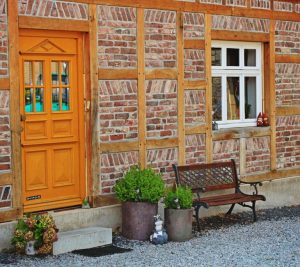If you’re considering investing in a holiday home or property abroad, there’s a lot that you need to consider. Below, we’ve put together an essential guide to buying property abroad.

Take time to search for your property
When you’ve decided that you want to invest in overseas property, the chances are that you’ll jump at the first chance you have to put down a deposit. Don’t. Make sure that you search high and low for a property that ticks every one of your boxes – whether that’s a swimming pool, access to local facilities, a local British community or stunning scenery.
Don’t settle for second best, because once you’ve put down your deposit, it’s too late to change your mind. We recommend working with an estate agent such as Icon Property, who will be able to provide you with an array of options and help you get the very best deal on your holiday home.
Seek legal advice
Unfortunately, buying an overseas property isn’t always easy. Therefore, you should seek an independent lawyer, who has no connections to a particular developer or estate agent, as soon as you can to help you on your property buying journey.
This lawyer should be fluent in both English and the local language, and they should have a strong understanding of how property law works in the country and how it will relate to overseas buyers. If you’re buying a property in a European country, you may need to find a notary, an impartial government repetitive who will oversee your purchase.

Decide whether you want to buy a property overseas
Before you dive in head first and make an impulse decision, weigh up the pros and cons of buying a property in your chosen country. Would it be more affordable to rent out a property every time you visit, and will you be able to generate a return on your investment through rentals? Also make sure that you view your property in person at least once before buying, and look around for the best mortgage deals in the country. You should also look at the costs of restoring and maintaining the property – especially when you’re out of the country and will require third party assistance.
Add up charges and taxes
If you want to rent out your holiday property, you’ll be liable to income tax in both the country itself and in the United Kingdom. You’ll also need to pay capital gains tax if and when you sell the property if it is not your main home or residence, and when you die, inheritance tax should also be considered in some countries. Look at local laws and taxes, and decide whether or not it is financially viable to invest in property in your chosen country. Your lawyer should be able to help you with this.
We’ve rounded up only the basics of investing in overseas property – be sure to read in depth about the laws and costs involved before signing on the dotted line. And, if after reading this guide, you feel ready to invest in a holiday home, congratulations, and good luck!